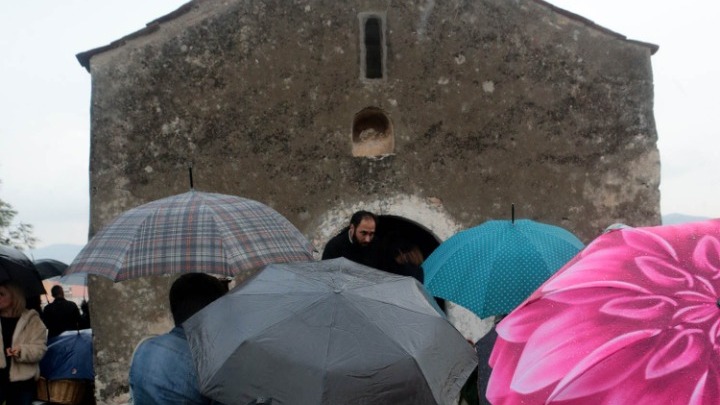A custom with ancient roots revives every year in Eleusis, at the sacred site of the Eleusinian Mysteries, where from the Mycenaean era to the end of the 4th century, the goddess Demetra, goddess of the renewal of nature and the germination of the cereals, was constantly worshiped.
It is the custom of the polysporia (multiseeds), which takes place on the eve of the Entrance of the Most-holy Theotokos into the Temple, on November 20, in the post-Byzantine church of Panagia Mesosporitissa. The church dominates the hill within the archaeological site – above the ancient Telestirion, the focal point of worship for the goddess – and is built on the ruins of an older Christian temple.
But what exactly is happening that day? Women boil legumes and wheat in their homes, reviving the rural tradition according to which everyone should boil what they produced.
Afterwards, they go to the Folklore Museum, where they boil in a cauldron all of the above together with grape molasses, pomegranate and raisins.
The final product is then put in glasses, which after the Vespers are distributed to the people who have gone to the church to attend the festive liturgy, bringing bread and offerings for the celebration of Panagia Mesosporitissa.
Source: ANA-MPA
